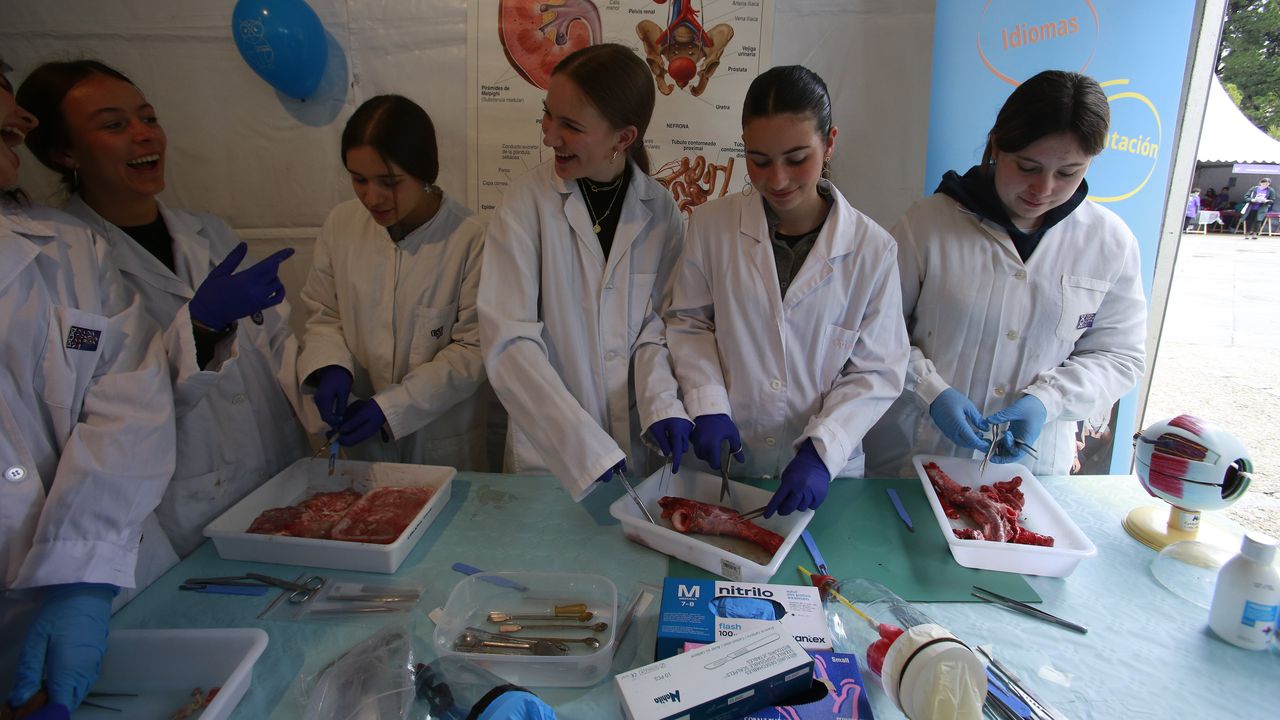Most doctors will think about this idea for a while. There are certain push factors. Most of us have received offers, but I try to weigh them and say, well, let me stay in my country and my nation as well, because of course this is beyond our capabilities. A few days ago I was mentoring one of my younger colleagues. You know, even at the medical institute, some of them have already decided that immediately after graduation they will abandon the course and leave the country. However, we also tried; I told him it was more than money. I advised him of the need to encourage people to go out and train, come back and donate money. The Minister also said this in his interview on December 1, among other things he emphasized. He talked about patriotism, and that we should be patriots. The problem is that our medical education is heavily subsidized even as it is now. I looked at the current tuition fees for medical students which range from N82,000 to just over N90,000. If a student were to learn in a private environment, even within the country, it costs millions of naira. I was looking at someone who posted something about (out of state) tuition. For example, if you are studying at the University of Sheffield, which is located in a large city, the tuition fees are around £34,000. You know it's a lot of money. So, we're talking about what we got on the cheap most of the time. Therefore, we must also look back to benefit the country and also to help our people.
It affected us seriously. In fact, it has affected all healthcare facilities around the world and everyone is struggling to maintain their facilities. For example, here (at IBB University Specialized Hospital) we also have to engage doctors at the local level to mitigate some of these gaps. Another thing is also the government's encouragement. I think the federal government has also reached this level because even though we are talking about Japan, there are still many doctors looking for work. It is true that they constantly come to you, but they tell you that there is a ban on work. I know at the federal level they've got what they call an alternative exemption. When someone leaves, they can actually be replaced.
Let me give you an example. Interviews were conducted with 70 doctors in Niger State, and we were only able to recruit 15 doctors to attend the computer-based examinations. Even after recruiting 15 doctors, the attrition rate will be high. Just give them five or six months and most of them will tell you they're gone; They will quit. We therefore encourage the government to provide an alternative exemption. If they leave, we will also have other people to take their place. The issue of university hospitals is also a very good initiative because university hospitals will want people to stay. As a healthcare professional or physician, after earning your first degree, you will want to specialize in certain areas. So, if this scheme is not available in your organization, people will of course travel to wherever it is available even within the country.
They just encourage you to come back, it's not like you have a mandatory thing like some places have something called a reward, so you have to sign. But this (in Nigeria) is more like they encourage you to come back; It is not necessary to sign any commitment directly. I don't know what you can get there now, but when we left, there was no such connection. Of course, there are warnings that when finished encourage you to go home. But some people may choose to stay rather than return.
I don't think that's the way people paint it. We still have leaders helping our local health care facilities. I don “t think so. They also have relatives and cannot take all their relatives abroad for examination. Some of their relatives are still forced to attend and apply to government (medical) institutions. That's why we try to encourage them to look back and try to strengthen our current health care structure. Sometimes you see them and they tell you that they have their own doctors. Inns also have doctors, and sometimes they also have private doctors to consult for minor ailments. They can write recipes but of course sometimes, as a normal person, there are certain things you want to access that they might say are available here (in Nigeria) and you will have no choice but to leave the country. For example, regardless of the number of heart transplants, no heart transplants are performed in the country. If you have heart problems to the point that you need another heart, this cannot be done in Nigeria. The same thing happens with liver transplantation, because it is not performed in the country. This means that if you have money regardless of your position, whether you are a boss or a manager, you still want to survive, you must raise money to go to places where these things are available.
The healthcare sector in Nigeria includes many things. It is easiest to classify them by training, staff and infrastructure. So, if you can cover it under these headings, I think it will help us cover a broad spectrum of the Nigerian healthcare system. As for human resources, you and I know that Nigeria faces a serious shortage of health workers and professionals, including doctors, nurses, laboratory technicians and others. We have seen a mass exodus in recent years, and if you ask some of the people who are leaving, they will give you different reasons why they are leaving. Of course, there are also known factors that push people to leave a country and factors that attract them to certain countries, which we often call push and pull factors.
Some of the push factors can be largely attributed to the lack of an enabling environment. Push factors mean that some things within a country push healthcare workers away, while pull factors mean that another country attracts them because of what they have. So for us here, a lot of people attribute it to the enabling environment; They will tell you that the environment does not allow them to fully practice their skills.
The current insecurity experienced by most countries may be another example of a push factor. There is danger in some areas of the country. Salary is also another very important factor. People feel that they are not getting enough reward. If you look at what other countries pay their doctors, it is almost 10 times what they (doctors) currently earn in the country (Nigeria). But of course, we all know it's not just a bonus. Furthermore, in terms of improving your skills, there are certain skills that cannot be easily acquired in the country; You may need to travel as it is not available in most of our healthcare facilities. So sometimes it is necessary to move out of the country due to more advanced facilities in some countries to acquire these skills.
For example, I know that I am also a beneficiary of studying abroad. After the residency program, I moved out of the country. I returned home and worked in this hospital for two years, and then had to travel under the supervision of the International Society of Nephrology. I had to go out of the country and also be exposed to developing opportunities outside the country, to arm myself with specific knowledge that I may not easily acquire here (in Nigeria) and then come back and give (to the community) that I had bought. There's something else about training, which I highlighted in the footage. These are just a few examples of push and pull factors.
In terms of infrastructure, if you look at the country many years ago, people will tell you that even foreigners would come to visit our medical facilities here. Everything worked, but over time things began to deteriorate, because medicine is very dynamic, dynamic in the sense that it is constantly changing. For example, there are certain surgical operations that can be performed through what is called laparoscopy, instead of opening the patient’s abdomen widely, instead of just making a small incision to achieve what is desired. On the screen, a person can see what you are doing and do it precisely. Our hospitals and centers do not have such equipment.
For example, we have heard of people who have gone abroad to train as interventional cardiologists. But if you go home, you'll need what's called a cardiac lab to apply the skills you've learned. In most cases we do not have a cardiology laboratory. This means that you come home as an interventional cardiologist and you go for a year or two without practicing the skills that you have learned, and over time the skills are lost, and sometimes you have to come back for retraining. This is one aspect. There is another aspect that also relates to studying in universities that are overcrowded in terms of the number of medical students and cannot accept more than a certain number due to the infrastructure and human resources available to them. If a university accepts 500 students and its maximum is 200, it knows for sure that it may not achieve the desired result.
But there is room for improvement. If you look closely, the country has also improved a lot over time. For example, kidney transplant. We do a lot of kidney transplants. As you know, kidney transplantation has been around in the country for some time. Some public centers do this, but not as many (transplant operations) are performed in the private sector, but I mean we have private centers that do a fair number of kidney transplants. So, instead of people leaving the country for Egypt or India, this number also decreased significantly. Now, it is better for people to stay to access these facilities in some medical centres.
Everyone knows that it is necessary to strengthen the country's health system. We continue to do so. We all know what it takes to strengthen the healthcare system, and it's the same thing we just mentioned regarding infrastructure. The government (should) simply ensure that infrastructure is updated and (provided) more modern facilities. The capacity of our universities to admit more doctors should also be increased and attention should be given to the welfare of our teachers so that they can train medical students effectively. Maybe the government I know could look into the reward to see if it can be increased. It will also help people fall behind. There is another aspect related to motivation; After training them (doctors), perhaps the government can also motivate them by giving them mortgaged houses. It can also provide them with the benefits of a car. I think these things were already there before, and the government can do that by immobilizing them and, to some extent, forcing them to stay for a while. Negotiating with other countries is another matter. I know this was done during the era of (former President Olusegun) Obasanjo when quite a few of my colleagues moved to South Africa and the government had to call the South African government and tell them that (South Africa) was transferring most of our doctors and doctors. Request a deal.





